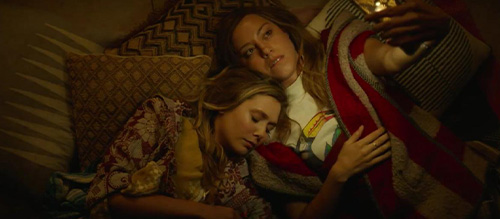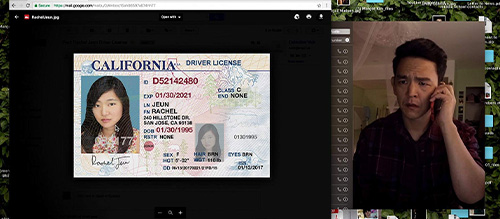The Art of the Social Media Thriller; Narcissism, Paranoia and Tools for Good or Ill
Technological paranoia has always been great fuel for exciting films and filmmaking. With invention and innovation comes change for humanity, and not always for the best. From the fear of AI becoming self-aware in Terminator to warnings about dehumanising body modification in Tetsuo and mass entertainment innovations quite literally becoming the death of the younger generation in Ring, technology has proven to be prime thematic material to power films for a long time. The last couple of years have played host to something of a renaissance for such films; we have seen a glut of what may become widely known as Social Media Thrillers.
What better way to refresh tired genre clichés and make sure your story connects with the contemporary viewer than to incorporate the preeminent distraction of the modern world?
The following list outlines four of the very best films to come out of this new trend; pictures that see the potential of social media as a source from which filmmakers can thrill, chill and spill.
1. Ingrid Goes West (2017)
Aubrey Plaza’s troubled protagonist takes the old maxim “get a life” a bit literally.
Battling grief and a laundry list of mental health issues, Ingrid stalks an Instagram star (Elizabeth Olsen) online, creates herself a whole new persona and then travels across the country to make friends for “real”.
Ingrid is a tragic character at heart, but you can understand her finding herself on the path she is on. In an always online world, seeing social media celebrities with such carefully constructed personas and feeling like you can form a real relationship with then online, why would you not want to emulate that if you were an impressionable young person?
Social media is an addiction, a sad way for those predisposed to it to become less. It’s a story about addictive personalities and how any particularly tempting aspect of modern life and pop culture can destroy lives if you’re predisposed to it, if you let it become all that you are. Ingrid’s real life is something she wants to and, perhaps moreso, needs to escape, but the way in which she does so is not healthy. In the end, after destroying her life and the fake relationship that became real, she gets the help she needs and is looking towards a brighter future – all she needed was to put down her phone.
2. Searching (2018)
It’s a simple enough premise: a father (John Cho), frustrated by the lack of progress in the police search for his missing teenage daughter (Michelle La) uses all the tools kindly provided by Apple and Google to track her down himself. The main selling point is that every part of the film is shown on some kind of screen. That’s our POV: screens. It’s the perspective of the real participants in the story filtered through the far-reaching distortions of technology.
This is the most positive portrayal of new technology on this list, viewing it for the most part as a tool to do good, as an aid for investigation and to keep tabs on our loved ones. The opening scene is a heartbreaking montage that overflows with the love of a close family that crumbles after tragedy strikes, the technology that aided their day-to-day lives now used to preserve those precious moments forever. It’s not all positive of course; while his family’s reliance upon technology ultimately becomes invaluable in David’s search for Margot, it was the wedge that kept them apart and prevented them from confronting their grief in a healthy and healing manner. How would this story have played out differently if father and daughter had sat down and discussed how losing a wife and mother had affected them rather than keeping it all bottled up face-to-face then using online spaces to vent their feelings? Both father and daughter type, delete and re-type text messages to each other – rather than say anything spontaneous or speaking from the heart, they have grown accustomed to editing their exchanges to keep the peace.
It boggles your mind a bit if you happen to be watching Searching on a handheld device. You’re watching a film about screens, a story told on screens on another screen and all the while thinking about what benefits and drawbacks these screens have for us. Is this Screenception?
Recommended for you: The Era of Nostalgia in Cinema – Why Are We Watching So Many Remakes?



